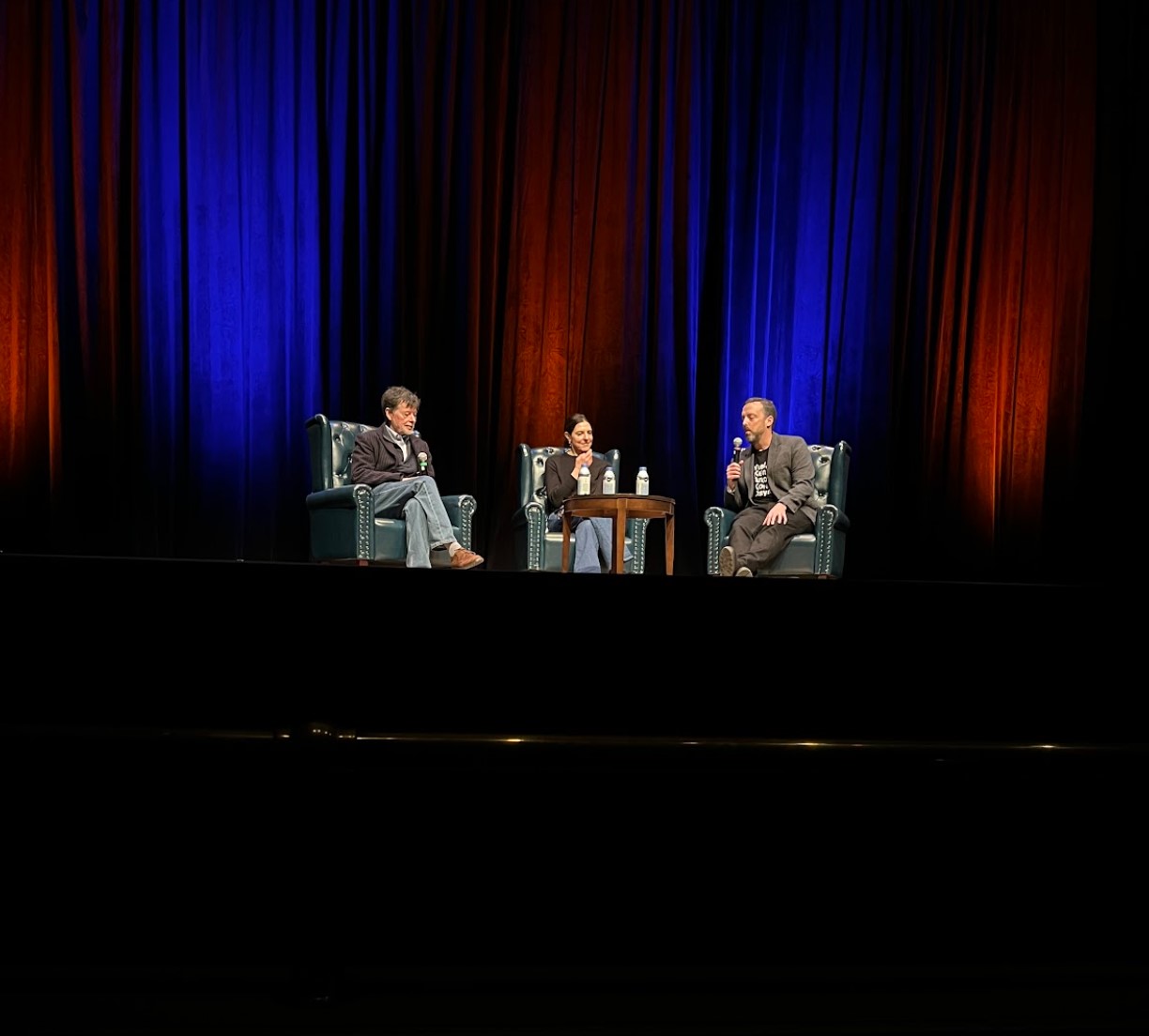By Sophie Lange, News Editor
On Saturday, “Ken Burns & Sarah Botstein: Our Democracy Challenged” was held at the Majestic Theater as part of “The Art of Ken Burns: Gettysburg Film Festival” occurring Apr. 5 to Apr. 7.
The event began with screenings of short documentaries by two of the recipients of the Better Angels Society’s Next Generation Angels Award. This award celebrates exceptional documentary filmmakers who are students in middle or high school.
Jay Patel’s documentary “Pearl Kendrick, The Pioneering Researcher Who Ended a Deadly Plague” was shown first, and it focused on the development of the pertussis vaccine for whooping cough during the Great Depression. The film looked at Kendrick’s discovery through a public health lens and connected the anti-vaccination campaigns of the 1930s to those of today. Additionally, the film showcased the role of women in the development of the pertussis vaccine. Patel won second place in the middle school division.
The second documentary was Abigail Giroux’s documentary “Wade in the Water: How African Americans Got Back Into the Pool”, which focused on the reintegration of public swimming pools across the nation. The film placed a particular emphasis on the case of Druid Hill Park in Baltimore, where Giroux grew up. Wade in the Water tackled subjects such as racial segregation and discrimination. Giroux’s film drew connections between racism and both the decline of public pool use and the persisting disparity in fatal swimming accidents between Black and white children. The film concluded with a discussion about how governments are reconsidering public pool and swimming lesson access to lessen these disparities. Giroux won first place in the high school division.

Ken Burns (left) alongside Sarah Botstein and Moderator Jake Boritt. (Photo Sophie Lange/The Gettysburgian)
Next, a clip reel was shown to the audience, which included a variety of American filmmaker Ken Burns’ documentaries, including “The Civil War,” “Huey Long,” “The US and the Holocaust,” and “The Congress.” Each focused on a different challenge the American democracy has faced since its beginning. The covered topics included the secession of the southern US states in the 1860s, the populist movement of former Louisiana Governor Huey Long and the Nazi sympathies of Charles Lindbergh.
At the conclusion of the clip reel, Gettysburg Film Festival Director Jake Boritt moderated a discussion with Burns and co-producer Sarah Botstein.
In response to a question about why individuals should look at the challenges democracy has faced, Burns explained, “…it becomes kind of axiomatic and therefore cliched to say that liberty and freedom require a certain vigilance, but it’s absolutely true authoritarianism is the yielding of a day to day vigilance.”
Burns also commented, “What I realized is that there’s only us, and there’s no ‘them.’ The hallmark of authoritarianism is to ‘other.’ That is to say, there is an enemy. It’s a ‘them,’ and in order for them [authoritarians] to advance their agendas, they have to create it. They have to ‘other’ people.”
The slogan for “The Art of Ken Burns: Gettysburg Film Festival” is “There’s Only Us,” connecting to Burns’ point about the challenges democracy has faced. Later, Burns and Botstein emphasized the importance of storytelling and interviews as functions of the art of filmmaking.
“One of the things we try to do in our work is to tell good stories, so that people get to history through good stories… our editing room is about telling good stories so that we can learn from our past and make a brighter future,” Botstein said.
Finally, Burns expressed that taking into account the collective human experience is vital to “ensure a future that has the possibility of not making the same errors that we will undoubtedly make again.” He turned towards Giroux’s and Patel’s short documentaries as an example of how history can shape the future.
“I think in their [Giroux’s and Patel’s films] you feel so sad when you see that a law has been passed, and you know that law is under assault now, or the deaths have gone back up because somebody’s saying vaccination isn’t good. You see the complexity of the human experience and wish for our better angels,” Burns explained. “The only way you know that is by dealing with all that messy stuff, as well as the good positive stuff.”
Burns highlighted the importance of learning history and watching these documentaries: “If you don’t know where you’ve been, you can’t possibly know where you are and where you’re going.”
